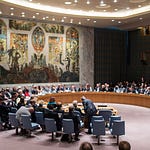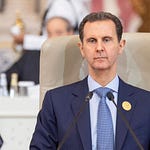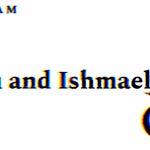When I first tuned into Conor McGregor’s interview with Tucker Carlson—filmed in the Grand Lodge of Ireland despite the secretive Freemasons’ later regret—I was struck by McGregor’s undeniable charisma and theatrical flair. As the former presidential campaign manager for Jesse Ventura, a man who successfully transitioned from combat showman to politician, I was intrigued by McGregor’s own political ambitions. However, my research into his positions revealed a profound contradiction: while Ireland’s electorate is overwhelmingly pro‑Palestinian and anti‑Zionist, McGregor has publicly aligned himself with Zionist causes, condemning Muslim migration and, praising Israel, the very entity fueling it. This essay critically examines that inconsistency, contrasting Irish public sentiment with McGregor’s vocal support for Israel and exploring the implications for his stated presidential aspirations.
The Carlson–McGregor interview was recorded last Tuesday in the Grand Masonic Hall on Molesworth Street, Dublin, against the backdrop of its large pipe organ—a location the Freemasons say they only learned about an hour before filming.
Philip AJ Daley, Grand Secretary of the Freemasons of Ireland, later admitted the organisation “would not have accepted a booking” had they known the identities involved, calling the decision “a mistake” and announcing the interview fee would be donated to charity.
This choice of venue—and the subsequent regret—underscores the attention‑seeking nature of McGregor’s media strategy and sets the stage for evaluating whether his substance matches his style.
Ever the showman, McGregor lit up large cigars, poured pints for guests, and entertained a MAGA‑clad crowd at his Black Forge Inn in Dublin, demonstrating the same flair that made him a global superstar, confidence and command—qualities vital for any political aspirant.
Yet charisma alone is insufficient; policies and principles must also resonate with the electorate.
Ireland’s Anti‑Zionist Electorate
Ireland ranks among the world’s most pro‑Palestinian nations, with 71% of citizens agreeing that Palestinians live under an apartheid system in Israel, according to an Ireland Thinks poll for the Irish Anti‑Apartheid Campaign for Palestine.
NPR reports that Ireland’s history of colonisation creates deep empathy for Palestinians, leading to some of the highest levels of support outside the Middle East.
A March 2024 CNN survey similarly highlighted that Ireland’s pro‑Palestinian sentiment is unparalleled in Europe.
Student protests at Trinity College Dublin and Shannon Airport further illustrate the public’s commitment to divestment from Israeli companies, drawing on parallels between Palestinian struggle and Irish history.
McGregor’s Zionist Stance
Contrary to the Irish mainstream, McGregor has taken a hard‑line pro‑Israel position. He slammed “pro‑Hamas and pro‑Hezbollah” demonstrations in Dublin, declaring that raising their flags “must become a major crime in the eyes of our state”.
On November 26, 2023, he publicly rebuked Irish PM Leo Varadkar for describing an abducted child prisoner as “lost” rather than kidnapped by Hamas, calling the prime minister “a disgrace” for downplaying the group’s alleged crimes whilst defending the crimes of Zionist terror.
His Wikipedia‑documented “Views on the Gaza war” section confirms McGregor’s staunch support for Israel, noting that he criticizes any attempt to delegitimize the Jewish state while demanding attention to acts of terrorism.
Inconsistency and Hypocrisy
Here lies the contradiction: McGregor, who decries the “genocide” of native Irish culture through mass migration, frames Ireland as besieged by external forces—yet he supports Zionist expansionism in Palestine and beyond.
While I sympathize with Irish nativism—rooted in Ireland’s own history of colonial subjugation—I cannot excuse a platform that selectively applies the language of genocide. Pre‑1948 Palestinians’ objections to Jewish migration mirrored sentiments McGregor now channels, yet he fails to extend empathy to their plight.
This dissonance suggests either ignorance of, or ill intent toward, consistency in moral principle.
McGregor’s magnetic stagecraft may galvanize attention, but substance—especially the alignment of rhetoric with a nation’s values—is paramount for any serious candidate.
Ireland’s electorate, overwhelmingly pro‑Palestinian and wary of unchecked immigration, stands at odds with McGregor’s pro‑Zionist declarations. If he truly aspires to the Áras, he must reconcile this disjunction: embracing the public’s empathy for Palestine or risk alienating the very majority whose support he needs. I challenge him to reflect honestly on these contradictions before pursuing Ireland’s highest office. Charisma can captivate, but coherence of principle is what wins political trust. Conor McGregor’s pro‑Israel declarations stand in stark contrast to Ireland’s overwhelmingly pro‑Palestinian, anti‑Zionist majority. If he hopes to secure the presidency he so often touts, he must first reconcile these contradictions—or risk alienating the electorate whose support he so fervently seeks.











